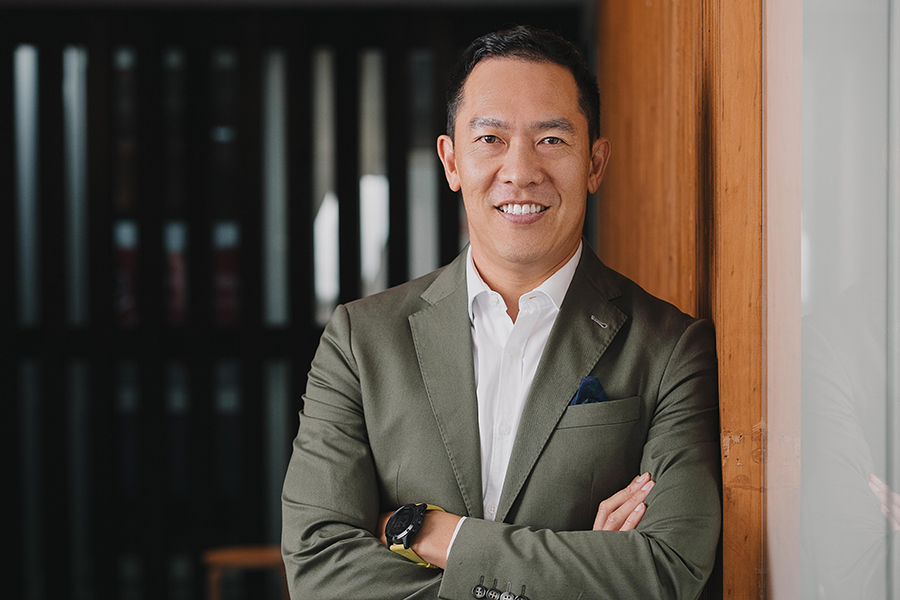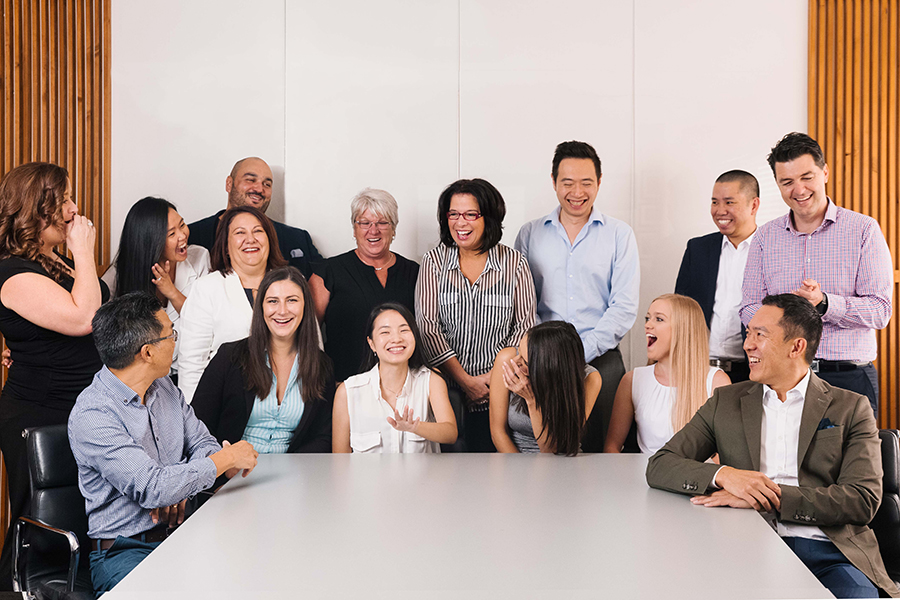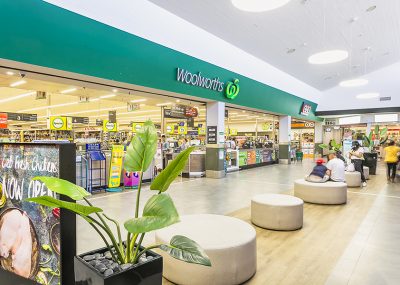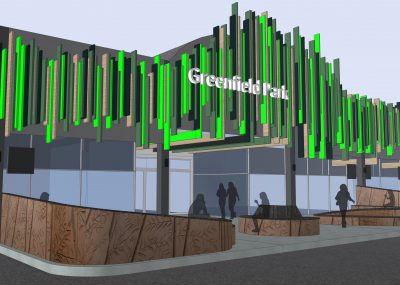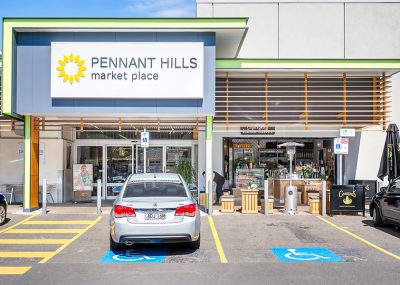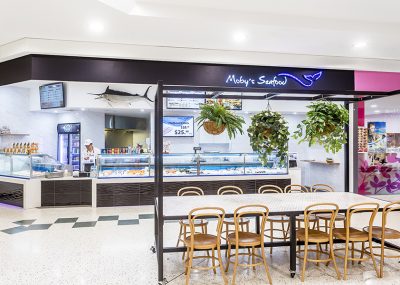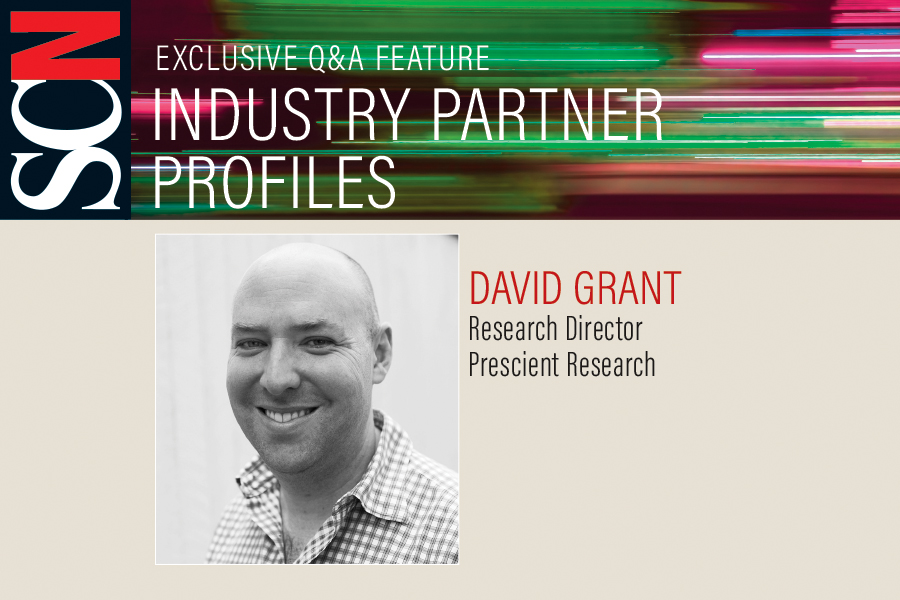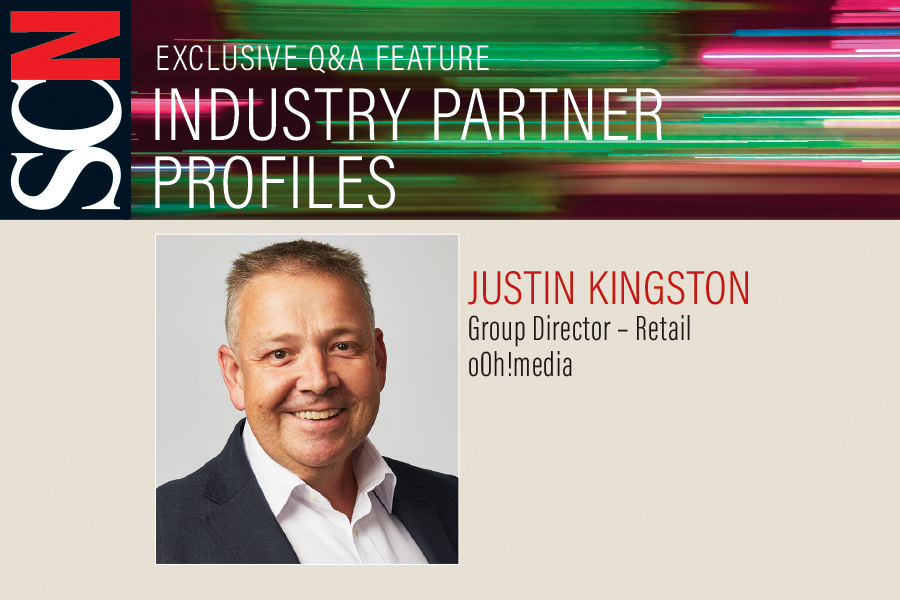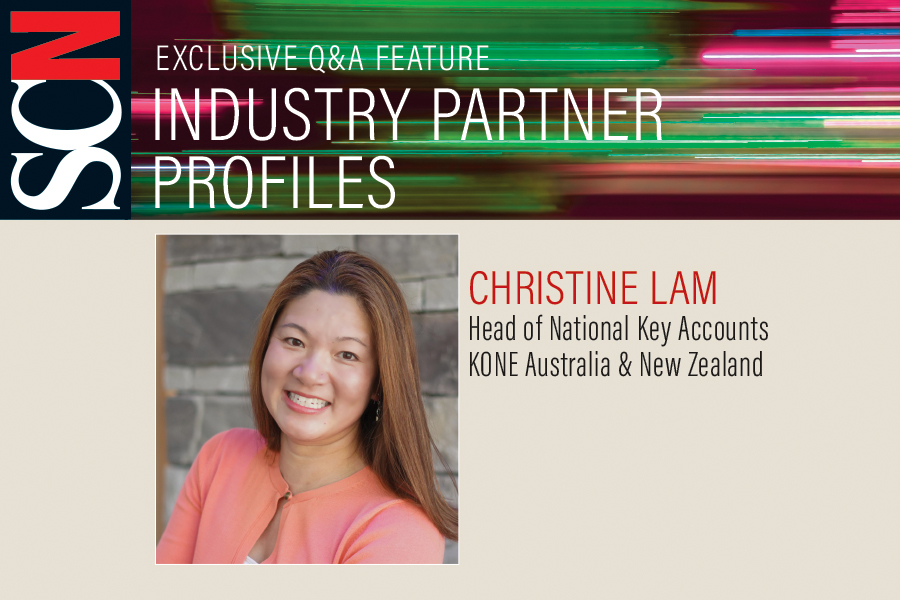The Shopping Centre industry is driven by people. It’s the skills and expertise of the people that manage, develop and evolve shopping centres for their communities that creates this great industry. Shopping Centre News profiles a range of interesting people from the industry each week. This week we speak to Brad Chan, CEO of Banna Property Group.
Banna Property Group is a family business that was established in 2009, they manage over 30,000 sqm of retail property space across the Sydney metropolitan area, varying from retail strips to large community based neighbourhood shopping centres. Their strategy is to breathe new life into existing shopping centres by transforming and curating our shopping centres into vibrant community hubs. No matter what size a company is, company culture is integral to success and Banna is built around core values (Integrity, Family, Accountability, Continuous Improvement & Team Work – iFACT) including a focus on innovation and a customer-centric approach. In a rather short time, they have cultivated an environment that shares knowledge and innovative ideas, as well as sharing a sense of fun, where never ending dad jokes seem to be the norm.
In October 2016, Banna Property Group launched a Startup Hub in one of our Chinatown properties as part of the family’s philanthropy. Haymarket HQ is established as a profit for purpose business with 100% of net profit being donated to charities.
What is your current role and main responsibilities?
My official title is CEO of the Banna Property Group, although I suspect my team has no idea what I actually do! Growing the business from being the sole employee to a team of 16 over the years has allowed me to transition my role from originally working IN the business to mostly working ON the business. As such, now I get the more sexy responsibilities such as leadership, culture, learning and development, strategy, bad jokes and stakeholder relations.
Like Boy George, I also wear many different hats. I run a co-working space (called HaymarketHQ) in one of our buildings in Haymarket; run the family’s philanthropic arm (the Banna Foundation) and sit on the Advisory Board. I also spend a lot of time each week on a pro-bono basis undertaking performance coaching with members of my team, external professionals and startup founders.
How did you get in to this industry?
I’d love to say that working in property was a childhood dream but that would be a lie.
Basically, I wasn’t smart enough to get the marks for my first choice at university which was physiotherapy, so I ended up studying my second choice – a property degree at UTS. In hindsight, it was the better decision for me and better use of my talents.
Tell us a little bit about your career
As someone who likes variety and change, I’ve moved around in my career a lot. After graduation, I worked in property management for DTZ whilst studying a post grad in finance and investment. Then I spent a couple of years in contract roles in London, followed by a career transition for a couple more years as a software developer for property clients.
I then got tired of wearing jeans and t-shirts every day so decided to get back into a corporate setting so studied a Masters of Real Estate at UNSW and joined EY’s Real Estate Advisory Team which allowed me to undertake a broad range of property consulting roles for corporate clients such as Westfield and Stockland.
More study followed (Masters in Town Planning at UTS) and then setting up a development management consultancy with two friends.
I finally saw an opportunity to internalise the management of the family’s assets and set up Banna Property Group (named after my grandparents Bernard & Anna). I’ve been running the family business for over 10 years now and have more variety now in my role than ever.
What has been your hardest career decision?
The hardest career decision was probably deciding to work for my family. I didn’t get asked to join but rather imposed myself however the challenge was accepting that I could no longer hop from company to company whenever I got bored. Joining the family business was going to be a long term gig and my final job. It’s much like joining a cult (from what I’ve heard) – once you join, you can never leave.
What do you love most about your job?
I have a fantastic team who like to have fun, sometimes too much fun. I am a big advocate of learning and development and so mostly gain satisfaction in seeing my team members grow in their capabilities and roles.
- The Banna Property Group team
What do you least like about your job?
Sometimes our communal fruit bowl runs out of fruit or there’s only old fruit left. Otherwise, having to let go of someone (because they have not ended up being the right person on the bus) is a job that I don’t enjoying doing.
What motivates you?
Two of my Strengthfinder strengths are Competition and Learner and I find that these two attributes keep my energy up, help me to stay focussed and help me strive for improvements. I also get inspired by seeing my team members achieve their goals.
What makes a great CEO?
Better to ask a great CEO but in terms of key leadership attributes, I would say humility, adaptability and self-awareness. I’ve found that understanding the strengths of every individual in our team and leveraging off those strengths has been very impactful.
What is your most memorable moment of your career?
Learning how to surf. I had quit my job at EY and joined two friends to set up a property advisory business. We were three young ambitious guys working out of a small storage room (because it was rent free) in Bondi Junction hustling to build something great. We didn’t pay ourselves for the first few months and when our first client paid us, instead of doing the responsible thing and banking it, we went straight out to the local surf shop instead and bought ourselves surfboards and wetsuits. The next day, instead of going to work, I was at the beach learning how to surf.
What do you think makes a successful shopping centre?
If I knew the secret I certainly wouldn’t advertise it in an industry forum but I think a shopping centre that integrates itself into the local community, deeply understands its customers and responds accordingly will ultimately be successful.
At Banna, we spend a lot of time these days communicating with our customers (including tenants and shoppers). We are then able to better tailor our centre improvements based on our customer’s feedback and better deliver on what they want, not what we think they want. This worked well for us previously at Pennant Hills Marketplace and we are currently applying our learnings in transforming Greenfield Park Shopping Village.
- Cabramatta Plaza
- Greennfield Park refresh
Which in your opinion is the best example of a good shopping centre, retail precinct or place?
Visiting K11 Shanghai a few years ago was certainly different. This centre blended art installations, live music, herb gardens and other interactive displays in one building. Did I mention that you can even do your shopping there too!? At a different level, my local café and barista who already knows my coffee order and treats me like Meghan Markle’s husband (a future king) makes me keep coming back each day.
What are some of the trends you are seeing in the industry?
Lifestyle, entertainment and trendy food options seem to be targeted more as well as more digital interaction. Whether a shopping centre should be following the trend or uniquely bucking the trend is an interesting question.
Did you think you would end up in the role you are in now?
I was actually hoping I would be in early retirement by now but I guess I still need to work to pay for my kid’s tennis lessons. But to be honest, I’ve never been one to like to plan too far ahead so have never spent time thinking about where my role could end up in the long term. I even find it difficult to predict what my role will look like in another 5 years time however I am appreciative of the opportunities my career has taken to date.
What advice would you give to someone starting in the industry?
Search for a mentor, understand your strengths, prioritise your learning, work for a good manager and eat lots of fruit and vegetables.
What do you do in your leisure time to de-stress?
Exercise and reading (sometimes at the same time) are my low maintenance solutions to de-stressing. I shouldn’t admit this but retail therapy also works well for me and I could easily spend a few hours in a shopping centre.
What’s your favourite retailer and why?
This isn’t a typical retailer but when I was in Melbourne for the Australian Open this year, I took my kids to ArtVo which was situated in the Harbour Town Shopping Centre in Docklands. It is an immersive art gallery where you go around taking these amazing 3D selfies with various backgrounds. It was a fun few hours and an example of a unique experience within a shopping centre.
Do you like shopping?
Yes, I am proud to admit that I enjoy shopping a lot, even more than my wife. Conveniently, I like to argue that being an avid shopper enables me to be more effective in my role.
What is the single most important quality you need to possess to be in this industry?
Adaptability is an important attribute not just in this industry but in life. Being less focussed on what has worked in the past and being willing to experiment, take risks and pivot to a different solution will be a vital quality for industry professionals.
- Pennant Hills Marketplace
- Rosemeadow Marketplace


